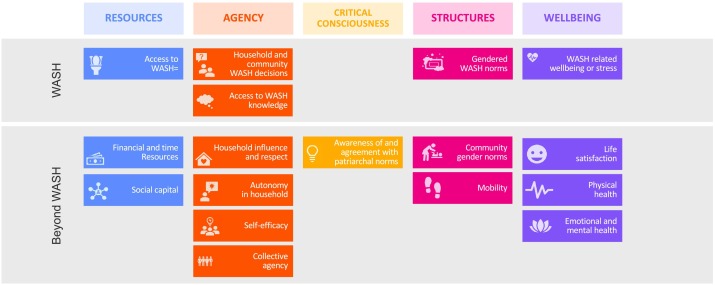The conceptual framework serves as the backbone of any research, guiding the investigation and providing a systematic structure to develop a deeper understanding of the topic at hand. At its core, a conceptual framework outlines key concepts and the relationships among them, facilitating comprehension, prediction, and explanation. In the realm of global development and sustainability, the conceptual framework provides essential insight into how certain variables and constructs impact developmental goals, and, conversely, how these goals influence various societal, economic, and environmental factors. The Sustainable Development Goals (SDGs), introduced by the United Nations in 2015, are a prime example of a set of objectives that greatly benefit from such a structured approach.
The SDGs, encompassing 17 broad goals ranging from poverty eradication to climate action, represent a global call to action to transform our world by 2030. Given their vast scope and interconnectedness, understanding the SDGs requires a conceptual approach to identify the potential synergies and trade-offs between the goals, as well as to navigate the intricate pathways that lead to their achievement. For instance, achieving the goal of 'Zero Hunger' (SDG 2) is deeply connected with other goals like 'Good Health and Well-being' (SDG 3), 'Clean Water and Sanitation' (SDG 6), and 'Life on Land' (SDG 15). Without a well-structured conceptual framework, the interdependencies between these goals could be easily overlooked, leading to isolated strategies that may not address the root causes of the issues or may even inadvertently exacerbate other problems.
In crafting policies or interventions geared towards achieving the SDGs, a conceptual framework aids decision-makers in understanding the broader picture, ensuring that strategies are comprehensive, coherent, and holistic. For instance, policymakers aiming to bolster education (SDG 4) need to consider not just the provision of schools and materials but also the socio-economic factors that might prevent children from attending school, such as poverty (SDG 1), hunger (SDG 2), or gender inequality (SDG 5). A conceptual framework helps to elucidate these relationships, highlighting areas where collaborative, cross-sectoral approaches could amplify the impact.
Furthermore, conceptual frameworks are instrumental in evaluating progress towards the SDGs. They offer a structured methodology to assess which initiatives are working, which aren’t, and why, enabling course corrections and continuous improvement in the pursuit of these ambitious goals. By delineating the expected relationships and outcomes, they provide a roadmap against which real-world results can be compared.
However, while conceptual frameworks are undeniably valuable, it's crucial to remember that they are, by nature, simplifications of reality. The world, with all its complexities and intricacies, cannot be wholly encapsulated within any single framework. Therefore, while they should guide our actions and understandings, they must be employed with a degree of flexibility, always open to revision and refinement as we gain new insights and perspectives.
Climate change can have detrimental effects on child health and wellbeing. Despite the imperative for a fuller understanding of how climate change affects child health and wellbeing, a systematic approach and focus solely on children (aged <18 years) has been lacking. In this Scoping Review, we did a literature search on the impacts of climate change on child health from January, 2000, to June, 2019. The included studies explicitly linked an alteration of an exposure to a risk factor for child health to climate change or climate variability.
Transforming food systems is essential to ensuring nutritious, safe, affordable, and sustainable diets for all, including children and adolescents. This paper proposes a new conceptual framework (the ‘Innocenti Framework’) to better articulate how the diets of children and adolescents are shaped by food systems.
The UN 17 Sustainable Development Goals (SDGs) and the 169 targets have been considered in multidisciplinary approaches worldwide. Whereas, several environmental, economic and social development concerns have been covered by the UN 2030 Agenda. The aim of this research is to investigate the complexity of the interactions between building materials and the SDGs, in an attempt to establish a knowledge-based decision support system for policy-makers, designers and construction stakeholders regarding the implementation of 2030 agenda.
Despite a significant increase in research and practise linking corporate social responsibility (CSR) and human resource management (HRM), a comprehensive examination of the relationship between these two constructs has yet to be undertaken. Scholars associating CSR and HRM rarely explicate their understanding of the connection between CSR and HRM (CSR–HRM) or the assumptions they make when exploring this relationship. Thus, we argue that a comprehensive review of the literature of the CSR–HRM nexus is relevant and necessary.

